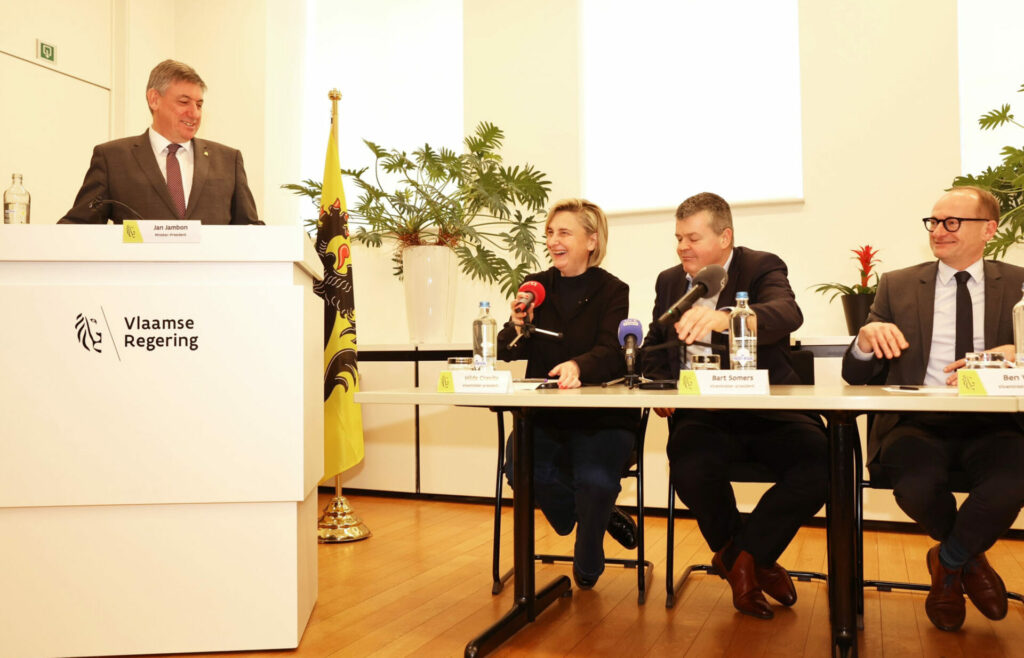Following months of difficult negotiations, the Flemish government has reached an agreement on its much-discussed nitrogen policy, Flanders' Minister-President Jan Jambon announced via Twitter.
Earlier this week, tensions between the Flemish government separatist, rightwing N-VA and Christian-democratic CD&V parties ran high as the latter did not want to agree to a proposal that was on the table earlier. There will now be extra investigations into the issues that were sticking points for CD&V.
"The Flemish government has just reached an agreement on a definitive nitrogen regulation," Jambon (N-VA) wrote on Twitter.
Earlier on Friday, several compromise proposals were put on the table by the Flemish Council of Ministers to overcome CD&V's biggest issues. These were mainly that nitrogen emissions from industry and farms should be treated more equally. It also aimed to redistribute nitrogen that would be saved by closing some farms to increase the emissions limits for other agricultural businesses.
A compromise has now been worked out on both points. This will see these two issues examined more thoroughly to assess whether the relaxations CD&V demands would be possible whilst still achieving the aim of cutting nitrogen emissions by 50% by 2030.
If it turns out that a more flexible permit threshold for farmers is feasible and that emission rights can be transferred within the objectives of the policy, Jambon agreed that this will be done.
Related News
- Nitrogen policy: Flemish government in crisis after failed negotiations
- 'Legal minefield': Flemish Government cannot find agreement on nitrogen policy
- Belgium in Brief: What's all the fuss with the nitrogen policy?
The compromise has the advantage that CD&V was able to support the proposal that had been on the table since Sunday. This was important for N-VA as the party had stated several times that Sunday's proposal was "final".
Environment Minister Zuhal Demir (N-VA) said that Sunday's proposal was "approved unchanged by all government parties." On Twitter, she hailed the agreement as "a milestone for our living environment, the health of the Flemish people and the future of agriculture."

